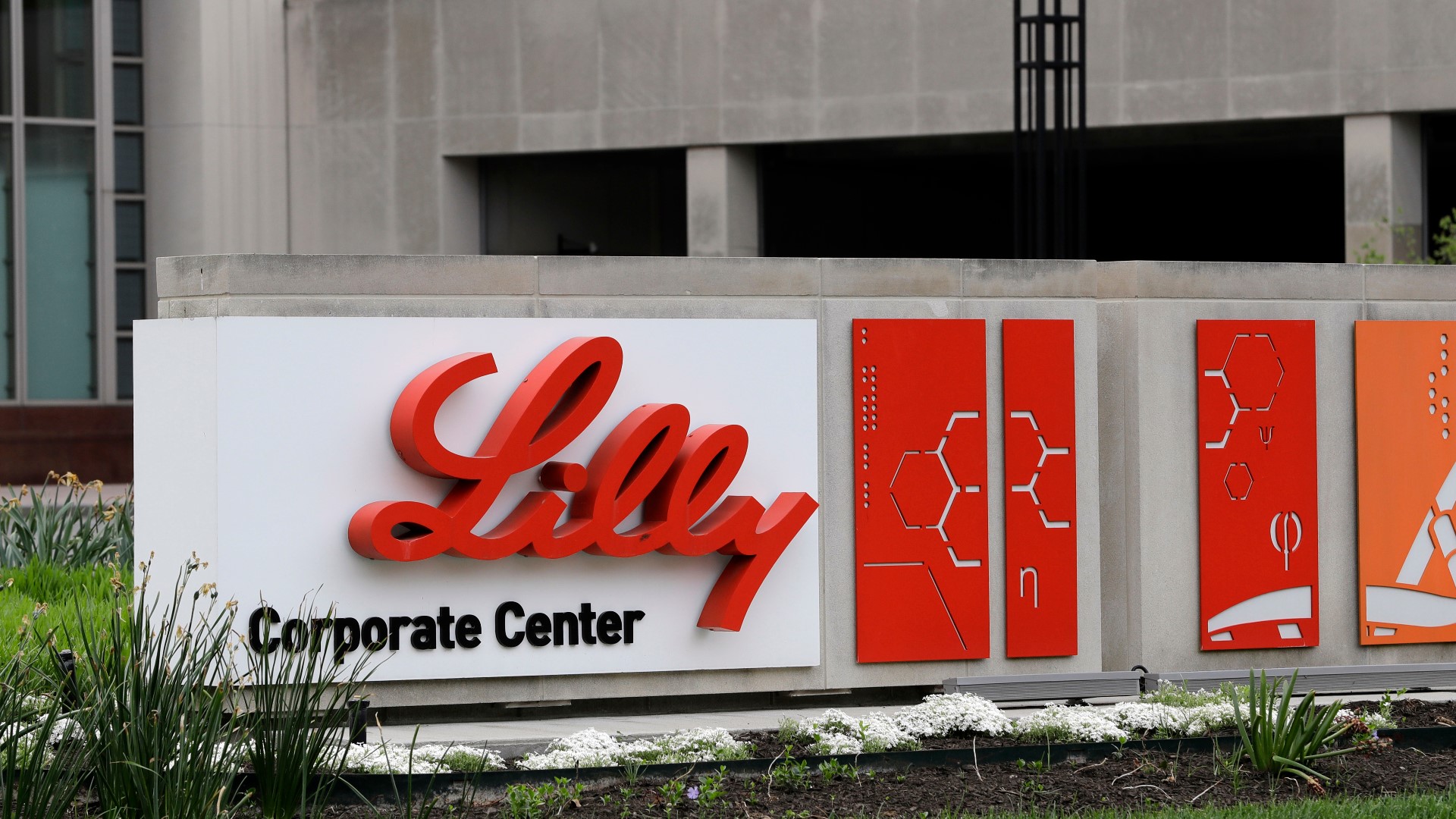INDIANAPOLIS — One of Indiana's largest employers has condemned the state's new ban on abortions and warned that, because of this new law, it will seek to expand elsewhere.
Pharmaceutical giant Eli Lilly and Co., which employs 10,400 people at its headquarters in Indianapolis, said it's reassessing its presence in Indiana as a direct result of the state passing a bill that bans nearly all abortions.
“Lilly recognizes that abortion is a divisive and deeply personal issue with no clear consensus among the citizens of Indiana. Despite this lack of agreement, Indiana has opted to quickly adopt one of the most restrictive anti-abortion laws in the United States," the company said in a statement Saturday.
RELATED: Gov. Holcomb signs abortion ban into law, takes effect Sept. 15; $200 tax refund bill also signed
The abortion ban, which takes effect Sept. 15, includes some exceptions. Abortions will be permitted in cases of rape and incest, before 10-weeks post-fertilization; to protect the life and physical health of the mother; and if a fetus is diagnosed with a lethal anomaly. Victims of rape and incest won't be required to sign a notarized affidavit attesting to an attack, as had once been proposed.
Under the bill, abortions can only be performed in hospitals or outpatient centers owned by hospitals, meaning all abortion clinics will lose their licenses. A doctor who performs an illegal abortion or fails to file required reports will lose their medical license.
Indiana on Friday became the first state in the nation to approve such legislation since the U.S. Supreme Court overturned a 1973 landmark case that had protected the right to abortion nationwide.
"The Indiana Legislature took a devastating step as a result of the Supreme Court's extreme decision to overturn Roe v. Wade and eliminate women's constitutionally protected right to abortion," White House Press Secretary Karine Jean-Pierre said in a statement Saturday. "And, it's another radical step by Republican legislators to take away women's reproductive rights and freedom, and put personal health care decisions in the hands of politicians rather than women and their doctors."
Eli Lilly said it feared the effect the ban would have on hiring in its home state.
"We are concerned that this law will hinder Lilly's — and Indiana's — ability to attract diverse scientific, engineering and business talent from around the world. While we have expanded our employee health plan coverage to include travel for reproductive services unavailable locally, that may not be enough for some current and potential employees."
After well over a century in Indianapolis, the company said it's looking to grow outside the Hoosier state.
"As a global company headquartered in Indianapolis for more than 145 years, we work hard to retain and attract thousands of people who are important drivers of our state’s economy. Given this new law, we will be forced to plan for more employment growth outside our home state."
Lilly has research and development hubs in New York City and the California cities of San Diego and San Francisco, and this year announced it would build a $700 million genetic medicine hub in Boston.
Lilly was not among the more than 250 businesses that opposed abortion restrictions in a letter released July 21 by the American Civil Liberties Union.
IU Health, Indiana's largest health care system, said it was studying the new law.
"IU Health's priority remains ensuring our physicians and patients have clarity when making decisions about pregnancy within the limits of the law. We will take the next few weeks to fully understand the terms of the new law and how to incorporate the changes into our medical practice to protect our providers and care for the people seeking reproductive healthcare."
Cummins issued a statement to its workers Saturday after the abortion ban was signed into law.
"Late last night, the Indiana General Assembly passed a comprehensive abortion bill that the Governor has signed into law. We are deeply concerned about how this law impacts our people and impedes our ability to attract and retain a diverse workforce in Indiana – concerns that we have voiced to legislators. Cummins believes that women should have the right to make reproductive healthcare decisions as a matter of gender equity, ensuring that women have the same opportunity as others to participate fully in the workforce and that our workforce is diverse. This law is contrary to this goal and we oppose it.
For Cummins to be successful it is critical that we have a safe and welcoming workplace, and communities where we embrace our differences and enable all employees to thrive. As we continue to grow our footprint with a focus on selecting communities that align with our values and business goals, this law will be considered in our decision-making process.
We have also been clear and consistent in advocating that we will continue to provide our employees with access to high-quality, affordable healthcare, regardless of where they live and are able to make healthcare decisions based on what they believe is right for them.
This law does not affect our right to offer reproductive health benefits and we will continue to offer such benefits to our employees."
The Indianapolis Chamber of Commerce urged the General Assembly to proceed with caution.
"Over the last two weeks, the Indiana General Assembly has debated a substantial policy change on the issue of abortion in a compressed timeframe," the chamber said in a statement Thursday. "Such an expedited legislative process — rushing to advance state policy on broad, complex issues — is, at best, detrimental to Hoosiers, and at worst, reckless."

